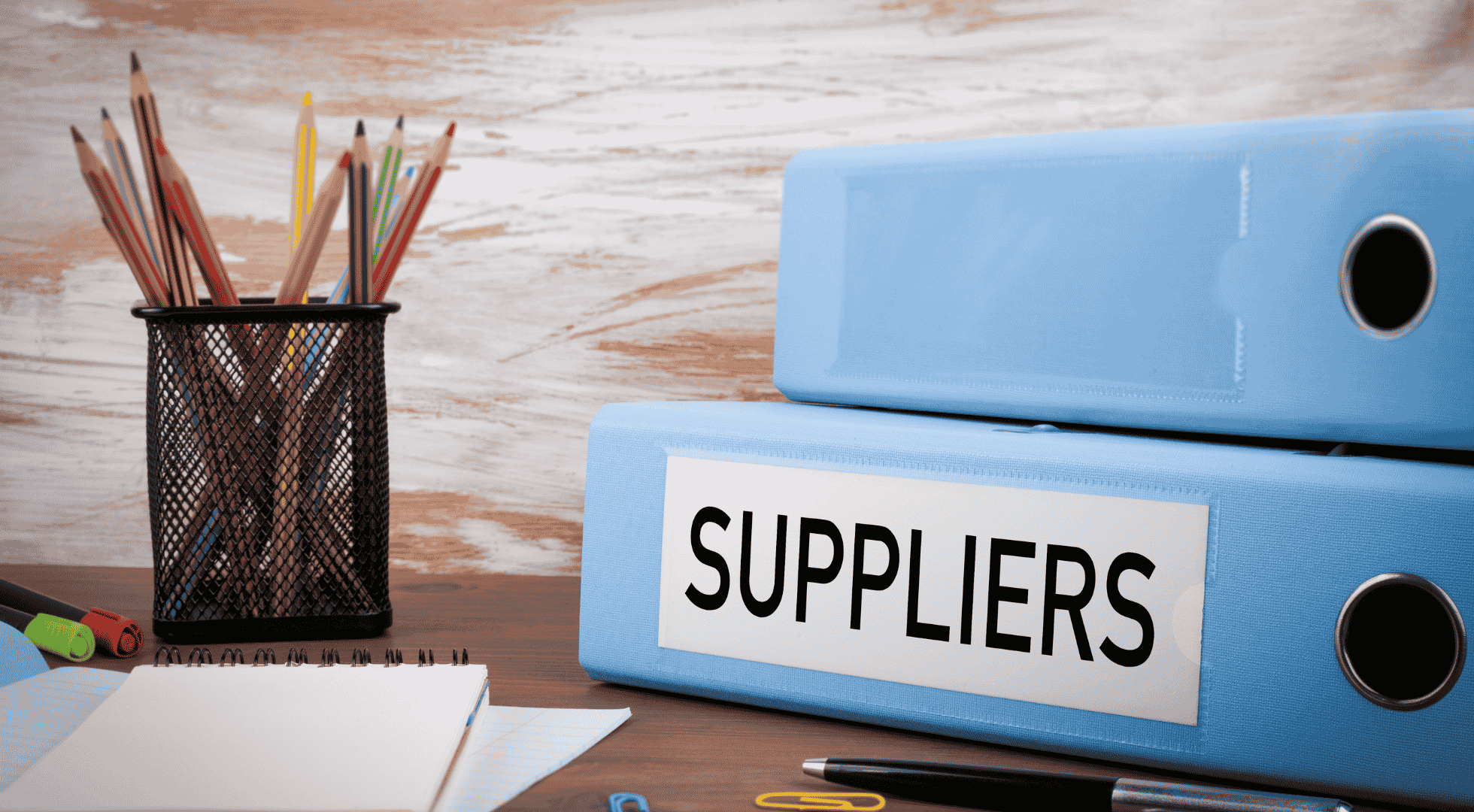When business travel becomes a routine part of operations, it’s not just your itinerary that defines the journey—it’s the network of partners working behind the scenes to make it seamless. From airline representatives and hotel managers to transport providers and tech platforms, these suppliers collectively shape the travel experience.

With the global corporate travel market projected to hit USD 2.37 trillion by 2030, the pressure to maximise value—while safeguarding the traveller experience—is more intense than ever. To meet these demands, businesses must treat travel procurement with the same rigour as any major strategic initiative.
Let’s explore how to build a high-performing supplier network, navigate the key vendor categories, and master the art of supplier negotiation for corporate travel.
Navigating the corporate travel supplier ecosystem
Behind every successful business trip lies a web of reliable, well-managed suppliers. The corporate travel ecosystem is wide-ranging and complex, comprising diverse vendors that ensure smooth, cost-effective journeys from start to finish.
Understanding the role of each supplier—and how to collaborate effectively—is critical to optimising your travel programme. Here’s a closer look at the major players:
- Hotels and accommodation
Accommodation often accounts for 20–30% of corporate travel spend, making it one of the largest cost centres. From city hotels to extended-stay apartments, ensuring that selected properties align with your safety, comfort, and amenity standards is essential.

- Airlines and aviation services
Air travel is frequently the most time-sensitive—and costly—component of business trips. Strong airline partnerships enable better route flexibility, swiffer disruption management, and eligibility for corporate discounts.
Many travel managers optimise airfare spending through negotiated route-specific rates and Global Distribution System (GDS) tools.
- Ground transportation providers
Car rental companies, ride-hailing services, and chauffeur providers play a crucial role in ensuring travellers get from point A to B with ease. Effective coordination supports smoother transfers between flights, meetings, and accommodations.
Sustainability is also gaining prominence—according to a 2023 SAP Concur survey, nearly half of business travellers consider environmental impact when booking transport, with some willing to reject unsustainable options altogether.
- Travel Management Companies (TMCs)
TMCs act as end-to-end travel partners, overseeing bookings, expense tracking, and policy compliance. Their ability to centralise services often leads to cost reductions of up to 15%, thanks to better visibility and streamlined supplier relationships.
TMCs are invaluable in optimising operations, supporting duty of care, and enhancing the traveller journey.
- Meeting and event venues
From boardroom discussions to international conferences, the success of corporate events hinges on reliable venue partners. Hotels with function spaces, boutique event locations, and hybrid-ready setups are all part of the mix.
Negotiating bundled packages—covering accommodation, catering, and AV—can significantly reduce event costs. With the Asia-Pacific MICE sector projected to hit USD 441.1 billion by 2025, venue sourcing is increasingly strategic.
- Travel technology providers
Technology underpins scalable, modern travel programmes. Booking platforms, expense management tools, mobile apps, and reporting dashboards all contribute to smoother processes and richer insights.
These solutions streamline administration, highlight policy non-compliance, improve traveller experience, and provide critical data to inform supplier negotiations.
- Travel insurance providers
Risk management is a rising priority in corporate travel. Over 85% of companies rate insurance planning as essential, according to a GBTA poll.
Insurance providers protect travellers from flight disruptions, lost luggage, medical emergencies, and more—ensuring peace of mind for both employees and employers.
Best practices for sourcing business travel suppliers
1. Start with a deep dive into your travel needs

- Travel patterns: Are most trips domestic or international? What are your key destinations and peak travel periods?
- Traveller profiles: Which departments travel most? Are there executives or VIPs with special requirements (e.g. accessibility or dietary needs)?
- Budget and policy: What’s your allocated travel budget? What restrictions or flexibilities exist in your travel policy?
- Technology: Are you using booking tools, reporting systems, or expense platforms that new suppliers must integrate with?
- Sustainability and duty of care: What environmental goals do you have? How do you ensure traveller safety and support?
A well-crafted travel profile gives you the clarity to set your expectations — and helps suppliers understand how best to serve you.
2. Conduct a market assessment
A successful sourcing strategy begins with understanding the supplier landscape. According to Ashley Gutermuth, FCM Consulting Lead for the Americas, “It’s not just about knowing what’s out there, but understanding how different suppliers can meet your specific needs and add value.”
How to do it:
- Tap into industry resources (directories, trade shows, professional networks).
- Analyse market trends and benchmarks to understand what “good” looks like.
- Use tools like RFIs (Requests for Information) and RFPs (Requests for Proposals) to gather supplier details, from capabilities and service offerings to compliance standards.
3. Evaluate suppliers against what matters most
Once you’ve received proposals, it’s time to assess each supplier’s ability to deliver on your priorities. Go beyond price and consider:
- Quality of service and support
- Alignment with your travel policy
- Traveller satisfaction
- Sustainability credentials
- Data reporting and tech capabilities
- Risk management and duty of care
Pro tip: Don’t hesitate to conduct site visits, demos or clarification interviews if you need more insights. Strategic sourcing is all about making informed decisions.
4. Enter negotiations as a partner, not just a buyer
Negotiation isn’t about pushing for the lowest rate — it’s about forging partnerships that bring long-term value.
Key negotiation elements:
- Pricing: Explore volume discounts, loyalty incentives, and bundled services.
- Service Level Agreements (SLAs): Define response times, resolution processes, and KPIs.
- Flexibility: Allow room to adapt to changing travel volumes or circumstances.
- Tech compatibility: Ensure smooth integration with your systems.
- Sustainability & duty of care: Confirm how suppliers will support your ESG and risk management objectives.
5. Keep the momentum going: Manage relationships proactively

Sourcing doesn’t end at signing the contract. Long-term value comes from ongoing supplier relationship management.
Set up a regular performance review structure with your suppliers:
- Track metrics like cost savings, service quality, policy compliance, and traveller feedback.
- Use analytics and reporting tools to monitor trends and flag issues early.
- Schedule monthly or quarterly review meetings to address concerns and collaborate on solutions.
Encourage continuous improvement by:
- Sharing traveller feedback and encouraging suppliers to innovate.
- Recognising top-performing suppliers.
- Creating an open line of communication for feedback, issues, and ideas.
How to win at corporate travel negotiations
Securing great deals with travel suppliers isn’t just about cutting costs—it’s about building relationships, knowing your worth, and negotiating with intention. With the right strategies, you can optimise expenses, boost value, and enhance the travel experience for your team. Here’s how to get the upper hand in your next supplier negotiation:
- Be clear on your budget and boundaries
Before the discussion even begins, define your ideal budget and non-negotiables. Knowing your financial limits helps you stay grounded and avoid getting swayed by offers that don’t align with your goals. If the deal doesn’t meet your terms, don’t be afraid to walk away—it can often lead to better counteroffers.
- Listen first, then negotiate
Effective negotiation starts with understanding the other side. Take the time to truly listen to your supplier’s needs and pain points. This not only builds rapport but also helps uncover opportunities for compromise that benefit both parties.
- Communicate with purpose and clarity
Make your expectations known in a direct and respectful manner. Be specific about what you need, but also stay open to alternative solutions proposed by the supplier. Clear, two-way communication is essential to avoid misunderstandings and build long-term trust.
- Ask the right questions
Don’t just accept what’s offered—dig deeper. Use thoughtful, open-ended questions to explore areas like added value, flexible booking options, or exclusive perks. The more you uncover, the more room you have to negotiate terms that work in your favour.
- Showcase your value as a client
Suppliers are more likely to offer favourable terms if they see you as a valuable partner. Highlight your travel volume, potential for long-term business, and influence within your industry. When suppliers understand what’s in it for them, they’re more willing to meet you halfway—or more.
Partner with Holiday Tours to unlock smarter travel
Strategic supplier sourcing is the cornerstone of effective corporate travel management. Done right, it enhances traveller satisfaction, streamlines booking processes, and delivers measurable savings.
At Holiday Tours, we offer more than just negotiation support—we deliver decades of experience, strong supplier partnerships, and full-service travel management that adapts to your evolving business needs. From sourcing and policy development to real-time support and reporting, we empower you to turn corporate travel into a strategic advantage.
LET’S OPTIMISE YOUR TRAVEL PROGRAMME TOGETHER!
REACH OUT TO US AT +603 2303 9100 (PRESS 3) OR [email protected]
You may also be interested in:
